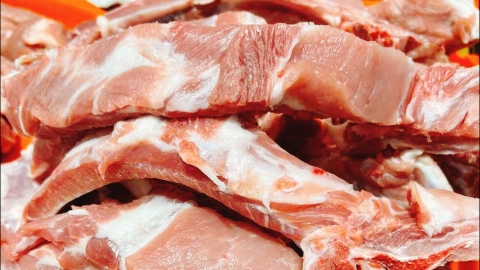Can patients with gallbladder polyps eat pork ribs?
In general, patients with gallbladder polyps can eat pork ribs, but it is not recommended to consume them frequently. The detailed explanation is as follows:

Pork ribs contain high-quality animal protein, which helps nourish the body, maintain muscle mass and normal physiological functions. Eating them in moderation can also satisfy appetite and prevent nutritional imbalances caused by excessive dietary restrictions. However, overconsumption is discouraged because pork ribs are relatively high in fat. Excessive intake may stimulate gallbladder contraction, increase the burden on the gallbladder, potentially causing discomfort in the upper right abdomen or worsening existing symptoms. Long-term, large-scale consumption may also negatively affect blood lipid levels, indirectly hindering disease management.
When consuming pork ribs, choose leaner cuts, remove visible fat, and use light cooking methods such as stewing or boiling—avoid frying or braising in oil and sugar. Limit portion sizes; it's best to eat small amounts only 1–2 times per month, and pair them with vegetables to aid digestion. If bloating or abdominal pain occurs after eating pork ribs, reduce or temporarily stop consumption. Consult your doctor during regular follow-up visits to adjust your diet plan accordingly.







